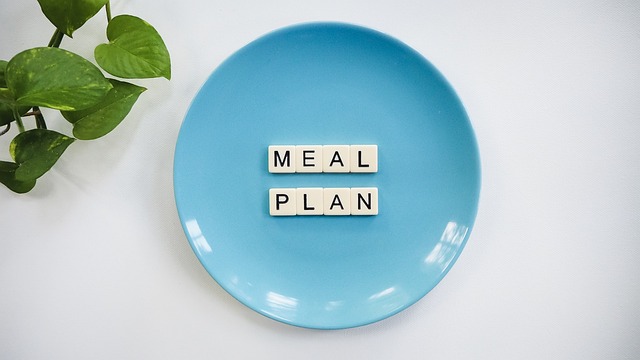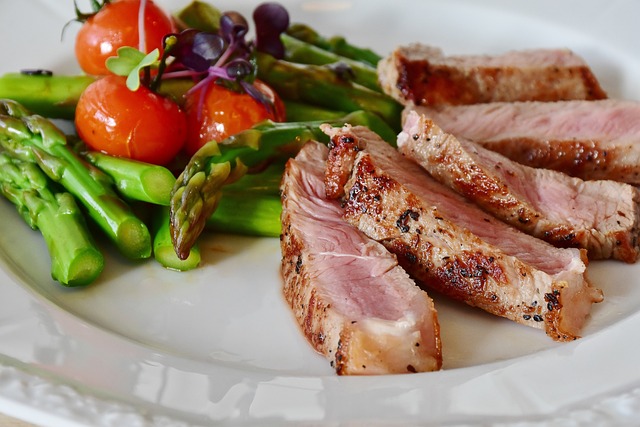
Losing weight is a common goal for many women, but with so many diet plans available, it can be overwhelming to choose the right one. A weight loss diet plan should be sustainable, healthy, and effective. It should also take into account individual needs and preferences.
One of the most important factors in a weight loss diet plan for women is creating a calorie deficit. This means burning more calories than consuming. However, it is essential to do this in a healthy way by eating a balanced diet that includes all necessary nutrients. A diet plan that restricts certain food groups or severely limits calorie intake can be harmful to overall health and may not result in sustainable weight loss.
Another important aspect of a weight loss diet plan is finding an approach that fits with an individual’s lifestyle and preferences. For example, some women may prefer a low-carb or high-protein diet, while others may prefer a plant-based or Mediterranean-style diet. It is important to choose a plan that is enjoyable and sustainable for long-term success.
Table of Contents
Understanding Weight Loss
Losing weight is a process of reducing body fat and maintaining a healthy weight. It involves burning more calories than consumed through a combination of diet and exercise.
The human body burns calories to produce energy for daily activities, and any excess calories are stored as fat. To lose weight, one must create a calorie deficit by consuming fewer calories than the body burns. This can be achieved by reducing calorie intake or increasing physical activity.
A healthy weight loss rate is about 1-2 pounds per week. Losing weight too quickly can lead to muscle loss, nutrient deficiencies, and other health problems.
It’s important to note that weight loss is not the same as fat loss. A person can lose weight by losing water weight, muscle mass, or fat. Losing fat is the goal for most people, as it provides the most significant health benefits.
In conclusion, weight loss is a process of reducing body fat and maintaining a healthy weight. It involves creating a calorie deficit through a combination of diet and exercise. A healthy weight loss rate is about 1-2 pounds per week, and losing fat is the goal for most people.
Nutritional Foundations for Women
Macronutrients
Macronutrients are essential nutrients that women need in large quantities to maintain good health. These include carbohydrates, proteins, and fats.
Carbohydrates provide energy for the body and should make up 45-65% of a woman’s daily caloric intake. Good sources of carbohydrates include fruits, vegetables, whole grains, and legumes.
Proteins are important for building and repairing tissues, and should make up 10-35% of a woman’s daily caloric intake. Good sources of protein include lean meats, fish, poultry, beans, and tofu.
Fats are necessary for the absorption of vitamins and minerals, and should make up 20-35% of a woman’s daily caloric intake. Good sources of healthy fats include nuts, seeds, avocado, and fatty fish.
Micronutrients
Micronutrients are essential nutrients that women need in smaller quantities to maintain good health. These include vitamins and minerals.
Some important vitamins for women include vitamin D, which helps the body absorb calcium and maintain bone health, and folic acid, which is important for women who are pregnant or trying to conceive.
Some important minerals for women include calcium, which is important for bone health, and iron, which is important for the production of red blood cells.
Hydration
Hydration is important for overall health and well-being. Women should aim to drink at least 8-10 cups of water per day to stay hydrated. Other good sources of hydration include herbal tea and low-sugar fruit juices.
It is important for women to pay attention to their nutritional needs and make sure they are getting enough macronutrients, micronutrients, and hydration to maintain good health.
Dietary Approaches
Mediterranean Diet
The Mediterranean diet is a plant-based diet that emphasizes whole grains, fruits, vegetables, legumes, nuts, and seeds. It also includes healthy fats like olive oil and fish, and limited amounts of red meat, sugar, and processed foods. Studies have shown that the Mediterranean diet can help with weight loss and reduce the risk of heart disease, type 2 diabetes, and certain types of cancer.
Low-Carb Diet
The low-carb diet is a diet that restricts carbohydrates, such as those found in sugary foods, pasta, and bread. It typically includes high-protein foods like meat, fish, and eggs, as well as healthy fats like avocados and nuts. Studies have shown that low-carb diets can lead to significant weight loss and improve blood sugar control.
Plant-Based Diet
A plant-based diet is a diet that focuses on foods derived from plants, such as fruits, vegetables, whole grains, legumes, and nuts. It can include small amounts of animal products like eggs and dairy, but typically excludes meat and fish. Plant-based diets have been shown to promote weight loss and improve overall health, including reducing the risk of heart disease and type 2 diabetes.
Intermittent Fasting
Intermittent fasting is a dietary approach that involves alternating periods of fasting and eating. There are several different types of intermittent fasting, but the most common involves fasting for 16 hours and eating within an 8-hour window. Studies have shown that intermittent fasting can lead to weight loss and improve insulin sensitivity, which may reduce the risk of type 2 diabetes. However, it may not be suitable for everyone and should be done under the guidance of a healthcare professional.
Overall, there are several dietary approaches that can help with weight loss and improve overall health. It’s important to choose an approach that is sustainable and fits with your lifestyle and preferences.
Meal Planning Strategies
Portion Control
Portion control is an essential aspect of any weight loss diet plan. Women should aim to consume smaller portions of food more frequently throughout the day. This helps to keep their metabolism active and prevent overeating at meal times. To achieve this, women can use smaller plates, bowls, and cups to control their food intake. They can also measure their food portions using kitchen scales or measuring cups to ensure they are eating the right amount.
Meal Timing
Eating at regular intervals throughout the day is another crucial strategy for weight loss. Women should aim to eat at least three meals a day, with healthy snacks in between. This helps to keep their metabolism active and prevent overeating at meal times. Women can also try to eat their meals at the same time each day to help regulate their body’s natural hunger and fullness signals.
Shopping and Meal Prep
Shopping and meal prep are two critical strategies for weight loss. Women should aim to shop for healthy, whole foods, such as fruits, vegetables, lean proteins, and whole grains. They can also plan their meals in advance and prepare them in bulk to save time and ensure they always have healthy options on hand. To make meal prep easier, women can use tools such as slow cookers, pressure cookers, and meal prep containers.
By implementing these meal planning strategies, women can achieve their weight loss goals in a healthy and sustainable way.
Exercise and Activity
Cardiovascular Exercise
Cardiovascular exercise, also known as aerobic exercise, is an essential component of any weight loss plan. This type of exercise increases the heart rate and breathing rate, which helps burn calories and improve cardiovascular health. Examples of cardiovascular exercise include running, cycling, swimming, and brisk walking.
Strength Training
Strength training is another important aspect of a weight loss plan. This type of exercise helps build muscle mass, which in turn increases metabolism and burns more calories. Examples of strength training exercises include weightlifting, bodyweight exercises, and resistance band exercises.
Flexibility and Mobility
Flexibility and mobility exercises are often overlooked in a weight loss plan, but they are crucial for overall health and fitness. These exercises help improve range of motion, reduce the risk of injury, and promote relaxation. Examples of flexibility and mobility exercises include yoga, stretching, and foam rolling.
Incorporating a combination of cardiovascular exercise, strength training, and flexibility and mobility exercises can help women achieve their weight loss goals and improve overall health and fitness. It is important to consult with a healthcare professional before starting any new exercise program.
Behavioral Changes and Support
Setting Realistic Goals
One of the most important aspects of a successful weight loss journey is setting realistic goals. Women should aim to lose 1-2 pounds per week, as this is a safe and sustainable rate of weight loss. It is also important to set goals that are achievable and measurable, such as fitting into a certain size of clothing or completing a certain number of workouts per week. By setting realistic and achievable goals, women can stay motivated and track their progress towards their ultimate weight loss goal.
Tracking Progress
Tracking progress is another important aspect of a successful weight loss journey. Women should track their weight, measurements, and body fat percentage on a regular basis to monitor their progress and make adjustments to their diet and exercise routine as needed. There are many apps and tools available to help women track their progress, such as MyFitnessPal and Fitbit. By tracking progress, women can stay accountable and motivated to continue making progress towards their weight loss goals.
Community and Support Networks
Having a strong support system is crucial for women who are trying to lose weight. Women should seek out support from friends, family, and online communities to help them stay motivated and accountable. Joining a weight loss group or finding a workout buddy can also provide women with the support they need to stay on track with their weight loss goals. By building a strong support network, women can stay motivated and committed to their weight loss journey.
Challenges and How to Overcome Them
Losing weight can be challenging, and women face unique obstacles when trying to shed pounds. Here are some common challenges women face when trying to lose weight and how to overcome them.
Busy Schedule
Women often have busy schedules that leave little time for exercise and meal planning. To overcome this challenge, women can try to incorporate physical activity into their daily routine by taking the stairs instead of the elevator or going for a walk during lunch breaks. Meal planning can also be made easier by preparing meals in advance or using meal delivery services.
Emotional Eating
Emotional eating is a common challenge for women, especially during times of stress or anxiety. To overcome emotional eating, women can try to identify their triggers and find alternative ways to cope with their emotions, such as practicing mindfulness or talking to a friend. Keeping healthy snacks on hand can also help prevent impulsive eating.
Hormonal Changes
Hormonal changes can make it more difficult for women to lose weight, especially during menopause. To overcome this challenge, women can try to incorporate strength training into their exercise routine to build muscle and boost metabolism. Eating a balanced diet with plenty of protein and fiber can also help regulate hormones and aid in weight loss.
Social Pressure
Social pressure to conform to certain body standards can be a challenge for women trying to lose weight. To overcome this challenge, women can focus on their own health and well-being rather than external standards. Surrounding oneself with supportive friends and family can also help provide encouragement and motivation.
By recognizing and addressing these common challenges, women can successfully achieve their weight loss goals and improve their overall health and well-being.
Maintaining Weight Loss
Maintaining weight loss can be challenging, but it is essential for long-term success. Here are some tips to help women maintain their weight loss:
- Keep track of what you eat: Keeping a food diary can help you stay accountable and aware of what you’re eating. You can use a notebook, an app, or a website to track your food intake.
- Stay active: Regular exercise can help you maintain your weight loss. Aim for at least 30 minutes of moderate-intensity exercise most days of the week.
- Don’t skip meals: Skipping meals can slow down your metabolism and make it harder to maintain weight loss. Instead, aim to eat three meals a day and snacks if needed.
- Eat a balanced diet: Eating a diet that is rich in fruits, vegetables, whole grains, lean protein, and healthy fats can help you maintain your weight loss.
- Get enough sleep: Lack of sleep can lead to weight gain, so aim for 7-9 hours of sleep each night.
By following these tips, women can maintain their weight loss and enjoy a healthier lifestyle.
Frequently Asked Questions
What is an effective 7-day diet plan for weight loss?
A 7-day diet plan for weight loss typically involves reducing calorie intake and increasing physical activity. A balanced diet that includes plenty of fruits, vegetables, lean protein, and whole grains is usually recommended. It’s important to consult with a healthcare professional before starting any new diet plan.
How can a beginner start a diet plan for weight loss?
A beginner can start a diet plan for weight loss by setting realistic goals, tracking food intake, and incorporating physical activity into their daily routine. Making small changes to dietary habits, such as reducing portion sizes and avoiding processed foods, can also be helpful.
What are some simple meal plans to help women lose weight?
Simple meal plans that can help women lose weight include a variety of fruits, vegetables, lean protein, and whole grains. Examples include a spinach and mushroom omelet for breakfast, grilled chicken salad for lunch, and roasted salmon with vegetables for dinner.
Which foods are considered the best for women aiming to lose weight?
Foods that are considered the best for women aiming to lose weight include fruits, vegetables, lean protein, and whole grains. These foods are low in calories and high in nutrients, which can help promote weight loss.
What strategies help achieve a 20-pound weight loss in a month for women?
Achieving a 20-pound weight loss in a month is not a realistic or healthy goal. A safe and effective rate of weight loss is 1-2 pounds per week. Strategies that can help promote weight loss include reducing calorie intake, increasing physical activity, and making healthy dietary choices.
Which weight loss programs are highly recommended for women?
There are many weight loss programs available for women, and it’s important to choose one that fits individual needs and preferences. Some popular programs include Weight Watchers, Jenny Craig, and Nutrisystem. It’s important to consult with a healthcare professional before starting any new weight loss program.

